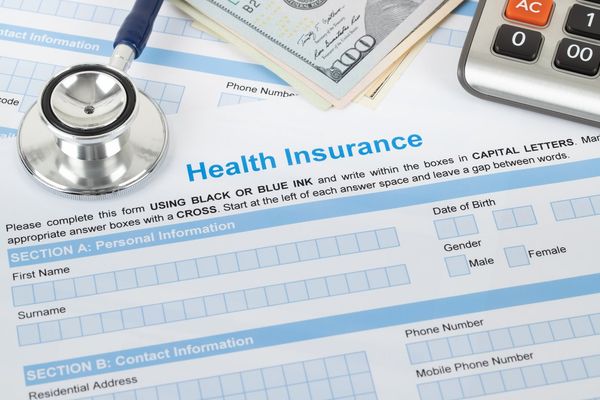By Tracy Layden
So, you will soon be turning 65. Congratulations, you will officially be a senior! That title comes with esteem, respect and senior discounts at your local restaurants. It also comes with a slew of changes in your insurance that you need to deal with—nobody's idea of fun.
Do your future self a favor: Set up your insurance before you need to make a trip to the doctor. And arm yourself with these important basics before you start.
What types of insurance are there?
Most people have one of two types of insurance: private or government provided. If you are still working and your employer offers insurance, you should continue to take advantage of it. If you're retired or about to retire, you will have to decide if private or public insurance is right for you.
Private Insurance
Private insurance is often offered through employers and organizations, and it's usually easier to get it through a group plan than getting an individual policy. If your employer shares the cost, that lowers your cost. You can buy private insurance on your own, but be prepared to pay the entire cost. You can buy a plan through the Health Insurance Marketplace.
Public Insurance
There are two main types of public insurance: Medicare and Medicaid.
- Medicaid is a state-run program designed for people who are unable to pay for private insurance. It is only available to low-income families. Covered services vary from state to state. Visit www.cms.gov to learn more.
- Medicare is health insurance the federal government provides to people who are 65 years of age or older. It can also cover people with certain health problems such as those that need dialysis or transplant. Medicare has four parts:
- Part A helps cover stays at hospitals and nursing facilities.
- Part B helps pay for doctors' visits and certain outpatient care.
- Part C allows you to get coverage through private health plans.
- Part D covers some prescription medicine costs.
To learn more about Medicare, visit www.medicare.gov.
What should I know about insurance after 65?
Retiring can affect your insurance coverage and benefits. Here are answers to a few common questions.
- What if I have retiree health benefits? The government considers you covered. You don't have to pay the penalty that people without insurance must pay.
- What if I turn 65 in the middle of the year? If you have a gap before your Medicare coverage kicks in, get a Marketplace plan and cancel it once your Medicare coverage starts.
- What if I'm 65 or older but not eligible for Medicare? You will need to go to the Healthcare Marketplace to purchase a private plan. If you don't have coverage, you will have to pay a penalty to the government.
- What if I'm losing my insurance provided by my employer? Losing job-based coverage qualifies you for a special enrollment period. You can enroll in a Marketplace plan any time within 60 days before and 60 days after the day you lose your job-based insurance.
- Do my pension, IRA or 401k withdrawals count as income? Usually, yes. You can be taxed on them and they can affect whether you qualify for benefits.
Navigate your way to coverage
The U.S. health care system is not the easiest to understand, never mind when you're in need of treatment. Don't wait to get your health insurance set up.
Everyone's situation is different, so if you have questions, talk to a government expert at the Centers for Medicare & Medicaid Services or the Affordable Care Act. Or contact an insurance broker in your area.
With your insurance in place, you will be free to enjoy being 65 without the fear of medical bills hanging over your head. A little planning now means a safer, more enjoyable retirement later.
Tracy Layden is a Certified Aging in Place Specialist. Born and raised in Silicon Valley, Tracy leads the marketing efforts at Alert-1, a personal safety technology and consulting firm dedicated to helping seniors live safely and independently. Tracy holds a degree in mathematics from Scripps College.






